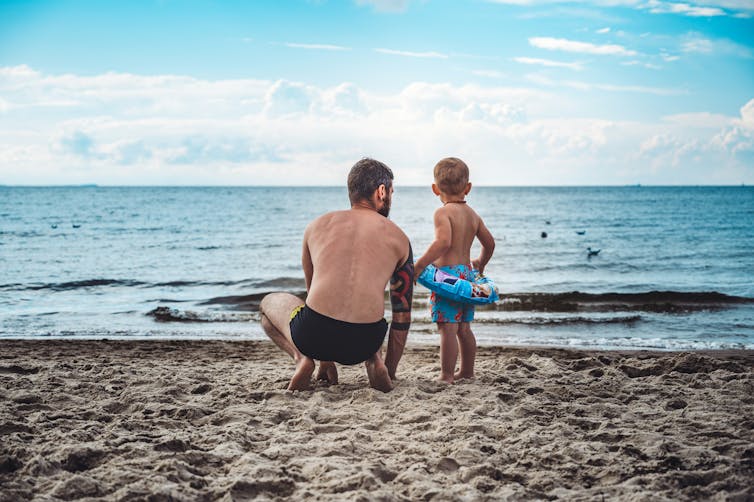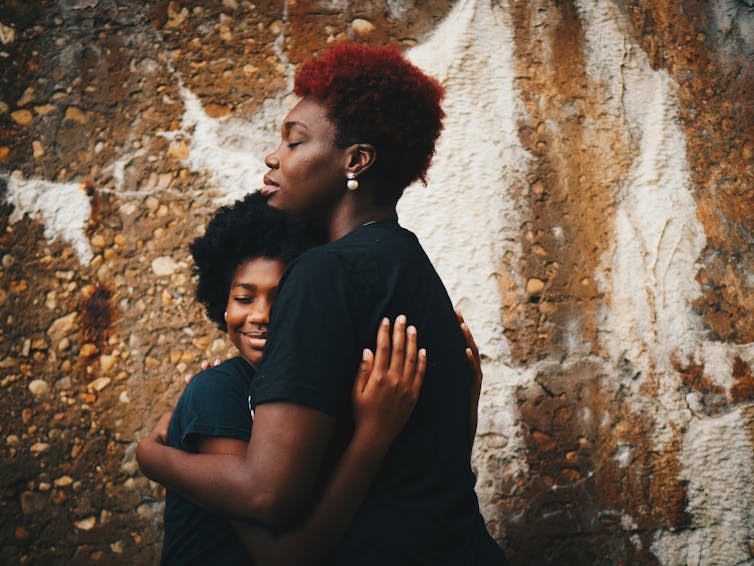
Giselle Natassia Woodley receives funding as part of the Australian Research Council (ARC) Discovery Project Adolescents' perceptions of harm from accessing online sexual content (DP 190102435). Giselle is also a founding member of not-for-profit advocacy group, Bloom-Ed who are committed to ensuring evidence-based Relationships and Sexuality Education (RSE) is offered to all young people in their homes, schools and and communities.
Jacqueline Hendriks (she/her) is Project Lead of the Curtin University Relationships and Sexuality Education Project and is part of the Management Team for SiREN. She receives funding from the WA Department of Health (Sexual Health and Blood-borne Virus Program) and various other Australian government and non-government organisations. They are a founding member of Bloom-ED, a collective action group to promote improved relationships and sexuality education throughout Australia, and is current Vice President of the Australian Association for Adolescent Health. Jacqui was engaged as a subject matter expert in the most recent revision of the Talk Soon. Talk Often resource that is mentioned in this article.
Edith Cowan University et Curtin University fournissent des financements en tant que membres adhérents de The Conversation AU.
Voir les partenaires de The Conversation France
The Australian government’s new campaign Consent Can’t Wait challenges us all to improve our understanding of consent. It asks a series of questions to illustrate this issue is more complex than simplistic “no means no” messaging.
The campaign invites viewers to consider the nuances of consent, so we can raise these important issues with children and young people in our lives.
But what is a good age to start talking about consent? How do parents tackle such conversations when this information probably wasn’t readily discussed in our own upbringing?
Small on-going conversations about consent that start early are best. At this age, children are becoming aware of their bodies, and this is a great time to start basic conversations around consent, body safety and boundaries.
If you’re tickling or rough-housing with your child and they ask you to stop, respect this. Similarly, you want your child to learn that they should listen to and respect the feelings of others.

We should also not force a child to give a hug or a kiss to a family member if they don’t feel comfortable. Teaching them to be polite and respectful without having to cross their own personal boundaries is key.
Bath time can also be a great setting to discuss how children’s bodies are their own and the basics of boundaries and privacy.
As children enter school, their social networks start to expand and the potential for conflict is inevitable. As parents, we can help them to navigate this time and unpack more developed ideas around consent.
The focus at this stage should be to ensure young people have the necessary skills to form healthy friendships and to engage respectfully with others. You may also want your child to recognise the diversity and difference that exists in our society.
It’s important your child starts to learn about verbal and non-verbal communication. Body language can provide great insight into how another person might be feeling, and children can learn how to tune in and respect others as much as possible.

As your child starts to form a stronger personal identity, help them identify and maintain their own personal boundaries. Demonstrating how to respond if someone is behaving or touching them in a way that makes them feel uncomfortable helps develop skills to communicate boundaries.
Finally, remember that young people begin to connect in online spaces too. Encourage your child to think critically about what they see online and who they talk to. Teaching children to engage respectively can assist with consensual experiences online too.
As we transition through the adolescent years, those foundations skills that first applied to relationships with friends and family, extend to romantic relationships, where consent is important for respectful, safe and healthy experiences.
If they haven’t already grasped the notion, it’s important for adolescents to understand that consent can be withdrawn. People have the right to change their mind at any time, even if it might be an activity they had previously agreed to.

Navigating sexual consent can be more complex than seeking and giving permission. Consent must be voluntary and freely given, without coercion or pressure. Just because we are in a romantic relationship with someone, this does not mean we should be expected to engage in particular behaviours if they cross our boundaries.
Adolescents also need to understand that rejection is inevitable. Sometimes people won’t want to go on a date with us, to give us a kiss, or to engage in a particular sexual act and that’s OK. Encourage young people to not take rejection personally, respect the wishes and boundaries of others, and be vigilant to verbal and non-verbal cues.
Adolescents will also start to communicate regularly with peers online and may engage in sexting: sending intimate images to one another. Teach them to express and practise consent to be safe online and be mutually respectful of each other.
Consent can be complex, particularly for minority populations.
The Sexuality Education Counselling and Consultancy Agency (SECCA) offers resources suitable for helping to navigate discussions with people with disability or people who require resources written in simple English.
The Rainbow Project has resources about consent for LGBTQI+ people.
Start the conversations early focusing on basic ethics, rights and bodily autonomy. Consent conversations can build in an age-appropriate way and extend to discussions about sexual relationships as children age.
While discussions should be age-appropriate where possible, it may be relevant to introduce certain topics earlier if need be too.
Communication about consent is best when it’s direct, free from judgement and maintains an open-dialogue. These discussions might feel awkward or uncomfortable but they are important. Homes are critical places for these discussions and it is important that your child sees you as an approachable and askable parent.
Education around consent won’t stop sexual violence on it’s own, so it’s important to have these discussions alongside other areas of importance.